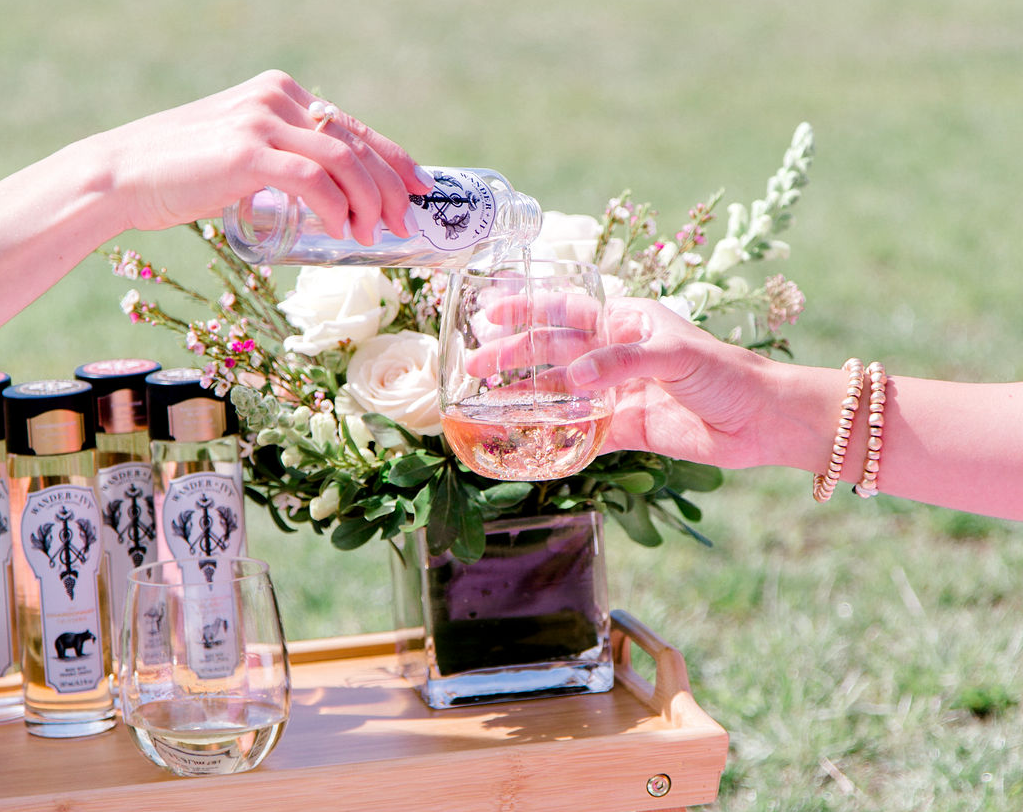Article: Everything You Need to Know About Organic Wine

Everything You Need to Know About Organic Wine
The Wander + Ivy team is super passionate about this topic! We care a lot about what we put in our bodies and this includes the type of wine. So let's talk about organic wine. The key questions we'll be answering.…what does it mean to be organic and why does it matter?
We hope that sharing these bits of knowledge will make you feel more informed when deciding on your next glass and help you understand the WHY behind Wander + Ivy wines!
What exactly is organic wine?
A lot of people wonder what organic wine actually means. The definition of organic wine is broken down into two parts. The first part is based on how the grapes are grown and the second part is the absence of certain ingredients commonly added to wines in the production process.
To be labeled organic, the grapes used for the wine must be grown without the use of artificial chemical fertilizers, pesticides, fungicides and herbicides. Organic wine also has zero added sulfites. We’ll come back to the topic of sulfites later.
While the popularity of organic food has been on the rise over the last few decades, organic wine has been a little bit behind. Currently, organic wine accounts for about 3% of global wine consumption. This also means that only 3% of the wine produced globally is organic. In 2013, only about 1.3% of the wine produced globally was organic, so we've made some progress! The good news is that 3% is expected to continue to grow substantially. Over the last several years, the awareness around organic wine, the demand for, and the production of organic wine has continued to increase. By 2023, almost 1 billion bottles of organic wine are expected to be consumed!
This niche for organic wine is growing rapidly and we are proud to be contributing to that growth!
What do all the labels mean?
You may see organic wine labeled in several ways when shopping. This is because there are several types of organic wine options on the market. Knowing how to read the type of wine is an important first step in going organic. 100% “Organic Wine” and Wine “Made with Organic Grapes” are most commonly available.
100% Organic Wine is wine made with certified organic grapes, meaning that they have been grown without using artificial chemical fertilizers, pesticides, fungicides and herbicides during their growing process and certified by a third-party. These wines also contain zero added sulfites.
We mentioned sulfites earlier in the post, and we're sure you've heard the term before, but just in case you're not fully looped into the definition, sulfites keep wine shelf stable. For some wineries, this is extremely important, especially when transporting wines internationally or aging over many years. For some people, sulfites can cause allergic reactions and depending on the level used, cause that post wine headache we've all experienced before. In mass produced wines, high levels of sulfites, other additives like chemicals, coloring, and sugar all contribute to a less clean, pure, natural wine.
Wines Made with Organic Grapes is what Wander + Ivy is categorized as! All of the grapes have to be grown 100% organically without using artificial chemical fertilizers, pesticides, fungicides and herbicides during the growing process (all of which is also certified by a third-party). The difference is that our wines contain a low level of sulfites as a preservative. The added sulfite level is super low at 0-100ppm (Parts Per Million) and is typically undetectable. One other important note on Wander + Ivy wines is that they have zero added sugars.

Why does it matter?
Artificial fertilizers, pesticides, fungicides and herbicides are items we try to avoid in our diets. When you order a red blend, we don't think you're meaning to ask for red - blended with pesticides, fungicides and herbicides. When opting for wines made with certified organic grapes, you avoid all of those chemicals that may be filtered down into your glass.
Additionally, there are no regulatory requirements for winemakers to tell you exactly what is in the bottle. Thus, wine bottles often do not list out the full ingredients inside them. This does not mean that all non-organic wine is made with these chemicals but choosing an organic option ensures those chemicals were not used in the grape growing or production process.
In 2019, the US Public Interest Research Group published some findings that showed weed killers to be present in popular wine and beer options. There is still a lot more research that needs to be done, but there has been evidence that these chemicals may be cancer causing. Wine free from potentially harmful chemicals, including weed killer, is incredibly important for us.
Farmers and wine makers who were early adopters to the organic wine game faced much skepticism to start. Over time, it has been shown that the quality of wine is not affected by farmers choosing to grow organically. In fact the organic process often gives the wine a more earthy and liveliness, which makes for a richer, more exciting pour!
As you can tell, we're passionate about organic wine and are excited to be providing you all with high quality, clean wine! Watch our full IGTV on this topic on our instagram here!
Shop all of our single serve wines made with organic grapes on our online wine shop.

